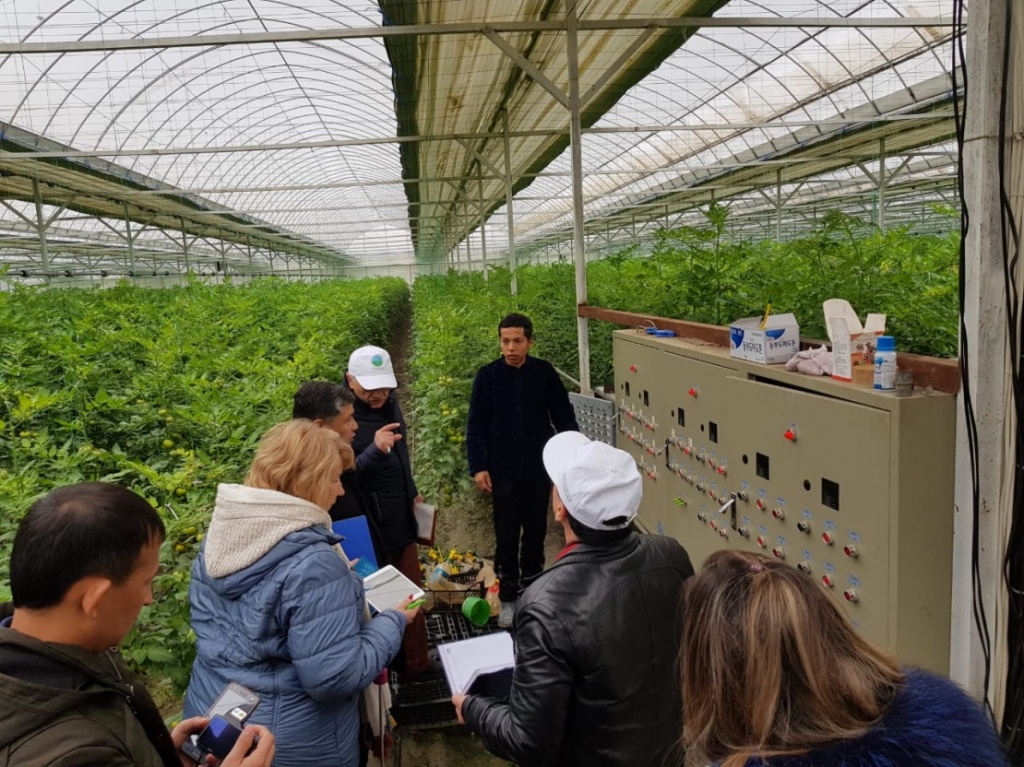
Starting from November 20, 2018, a two-week climate assessment mission was launched to study field sites that received financing for the development of sustainable agricultural practices in Tajikistan and Uzbekistan as part of CAMP4ASB project. One of the objectives of the ongoing project is to provide assistance to increase productivity and improve climate change resilience of local farmers through financing of new sustainable agricultural practices.
November 20-24, 2018, the monitoring visits were focused on selected field sites in Tajikistan. Then, the participants attended similar sites in Uzbekistan, November 26-30. In total, twenty farming sites were selected for the purposes of the field survey, ranging across different agricultural specializations and types of economic activity.
A joint group of experts from Tajikistan and Uzbekistan conducted the monitoring visits and assessment work. The group included the following representatives:
• CAREC project regional coordination group and project implementation groups of the national components from both Tajikistan and Uzbekistan,
• banking and microcredit organizations involved in the financing under the project,
• climate change component experts from the sub-projects.
The monitoring mission started from an introductory meeting in Dushanbe, where the national project implementation groups presented outcomes of their activities by country, shared the experience of issuing credits within the framework of CAMP4SAB and exchanged experience on other current issues.
Climate investment initiatives implemented in Tajikistan as part of the project created an opportunity to extend support to nearly 13 thousand people, 40% of which women. The project activities created almost 4000 new employment opportunities. The program is implemented in Khatlon and Sughd regions, as well as republican subordination districts of the country.
The national coordination group had organized meetings with the local communities and carried out trainings for farmers, involving more than 3000 people.
Over 2000 credits were provided to the borrowers for the total amount exceeding 3.5 million US dollars.
The main participants of the micro crediting in the Republic of Tajikistan are small dehkan farms, whereas in the Republic of Uzbekistan the program mostly deals with major agricultural enterprises.
_______________________
Climate Adaptation and Mitigation Program for Aral Sea Basin (CAMP4ASB)
![]()